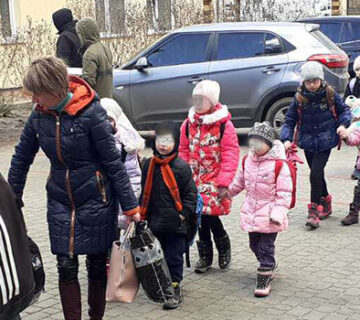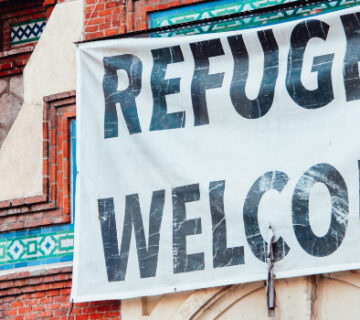 Brulica la vita at the Loppiano Farmstead (Fattoria Loppiano), in Tuscany’s Chianti hills, has been teeming with life during this harvest season. Also in the surrounding areas which have historically been the location for other important farmsteads that over time have made this place flourish agriculturally and in the development of the local community.
Brulica la vita at the Loppiano Farmstead (Fattoria Loppiano), in Tuscany’s Chianti hills, has been teeming with life during this harvest season. Also in the surrounding areas which have historically been the location for other important farmsteads that over time have made this place flourish agriculturally and in the development of the local community.
The arrival of the Focolare in Loppiano, in the mid 1970’s was a noticeable boost in the development of the region, also with the construction of the Cooperativa Loppiano Prima, in 1973 which, in nearly forty years, has had surprising developments.
“The Loppiano Farmstead was begun in 2004 in order to put the well-known Cooperativa Loppiano Prima on track with new Italian legislation on agricultural cooperatives,” recounts Giorgio Balduzzi, who is the general director of the Farmstead. “The Cooperative sold its strictly agricultural activities to a new company formed by the worker-members. Thus was born the Loppiano Farmstead of which the Cooperative is a majority supporting member.”
Beginning with the numbers: the farm consists of 200 hectares of land, distributed among vineyards, olive groves and arable land used for certified organic planting. Products include those typical of the Tuscan hills: Chianti wine, vin santo, grappa, cereals such as barley and durum wheat pasta. In addition there are 5,000 olive trees of different varieties, which yield extra virgin olive oil obtained by cold pressing.
 In recent years, some apartments have been renovated to be used for agricultural tourists. With their local Tuscan décor, they offer warm and welcoming accommodations for visitors to the farmstead. Aside from the guest lodgings, the farmstead also offers other amenities: pool, mountain-biking, private tennis lessons and tours of the farm with opportunities to enjoy its tasty products.
In recent years, some apartments have been renovated to be used for agricultural tourists. With their local Tuscan décor, they offer warm and welcoming accommodations for visitors to the farmstead. Aside from the guest lodgings, the farmstead also offers other amenities: pool, mountain-biking, private tennis lessons and tours of the farm with opportunities to enjoy its tasty products.
Staying overnight on the farm allows for more daytime activities at the “teaching farm” for student guests from primary and secondary schools, universities, families and groups from other European countries.
Staying overnight at the business company will enable a guest to take part in activities in the “production, sales and profit, but also the foretelling “Economy of Communion” with its emphasis on fraternity and reciprocity. How do these words come together in reference to the experience of the Cooperative and on the Farmstead? Giorgio Balduzzin continues: “At the basis of it all is the will to bring about a new way of running a business based on listening to one another and understanding, welcoming the ideas of others even when they are different from ones’ own; showing respect for others and accepting diversity as an enrichment of thought, having a collegial outlook for the good of the business.”
This challenge is not something that is taken for granted. There are difficult moments as well, “moments in which we have to remember the reason why we are working together, respecting and coordinating our roles, the hierarchy; setting as our target every morning fraternity, which is the foundation of our choice in life.”
Despite the present crisis, the peace for moving forward is the fruit of important experiences, which have been aimed at appreciating and valuing people’s talents, personal relationships and the goods of the business. Thanks to this open sharing of problems, a vital and propelling energy is injected into the group which makes each worker be part of a united body, capable of finding innovative solutions that look to the future, and are faithful to the Gospel in the concrete events of each day.
Compiled by Paolo Balduzzi


 Italiano
Italiano Español
Español Français
Français Português
Português



No comment